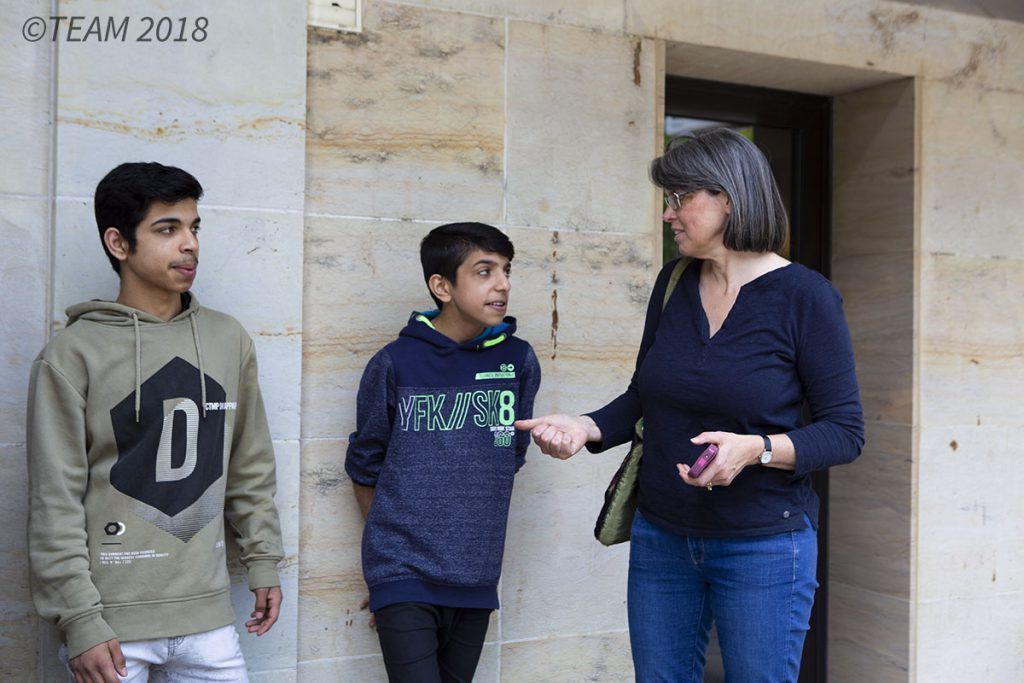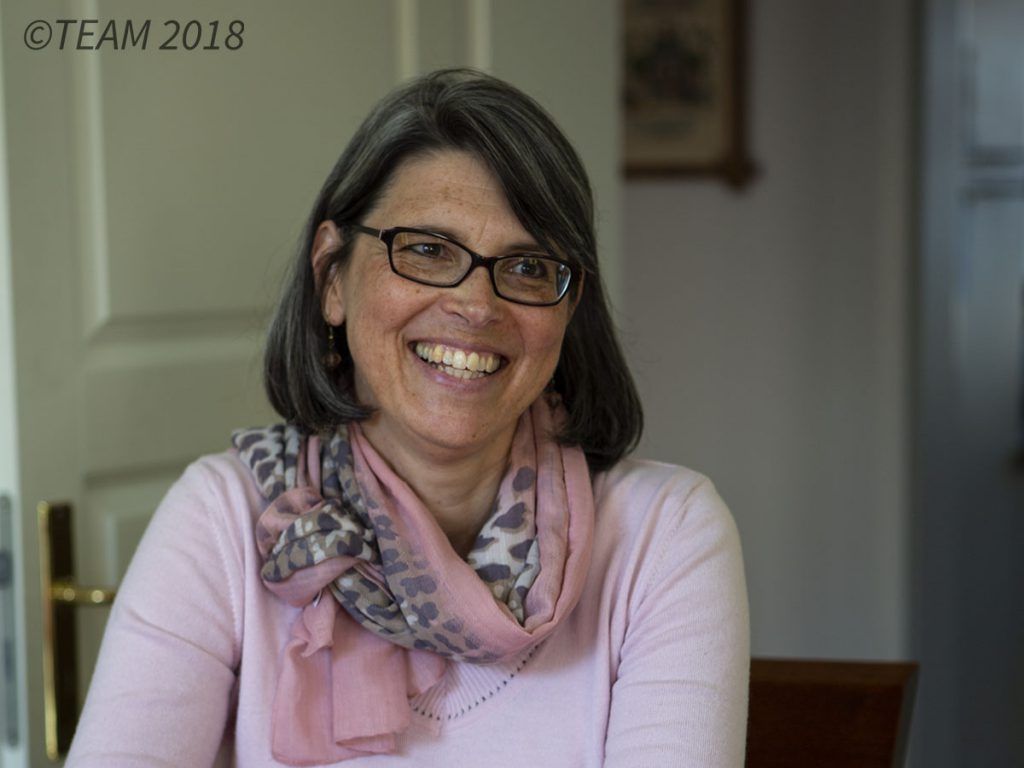When TEAM missionary Anne Ingram went looking for a way to connect with her German community, she didn’t expect to find it among a group of refugees.
Anne and her husband, Jeff, moved to Dresden in late 2013 to plant a church. She would walk the streets near their home, asking God how she could reach out to their new neighbors.
Right around the same time, the German government decided to open the nation’s borders to people displaced by war, poverty and violence in their own countries.
The refugees poured in by the tens of thousands, from places like Eritrea, Somalia, Iraq and Syria. Most arrived with little more than the clothes on their backs and no knowledge of the German language. Some bore physical wounds. Many more came with internal trauma.
By the end of 2015, more than 1 million men, women and children had crossed the border.
A Refugee Crisis Right Outside
The refugee crisis came front and center for Anne in early 2015. One day, she and Jeff came out of a store to find police in riot gear in the street. Two loud demonstrations were taking place at the same time — one pro-refugee and one anti-refugee.
The next day, they learned of the murder of an Eritrean man from the very neighborhood where Anne had been walking and praying. He was a refugee, she discovered, and there were hundreds more “right around the corner from us.”
Then Anne heard that a local youth center was looking for volunteers to help refugees learn German. The center was also in their community.
That was all Anne needed.
“I had been asking, I had put my feelers out, and the Lord just says, ‘Okay, here you are, Anne,’” she remembers. “And off I went.”
‘God Has Opened a Door’
The first time Anne walked into the youth center, she met Sammy and Hobbs, young men from Eritrea. They were about the ages of her own children. She sat down that evening and helped them practice German.
God has opened a door here, she thought.
A few weeks later, Anne took on official sponsorship for Sammy and Hobbs. Anne began to work with them through the necessary paperwork and appointments that came with applying for residency.
When it was time for the men to move out of government housing into a place of their own, Anne helped them find an apartment and furnishings — and rented a van to haul their things.
When their language-learning stalled, she arranged for Sammy and Hobbs to have dinner with a German family once a week, so they could learn the language in a more natural setting. That first evening, the men learned how to ring a doorbell with Anne’s help.
On another occasion they visited the bank, where Anne showed them how to use a bank card. They were astounded to learn that people actually left money in their account and didn’t withdraw it all!
Just ‘Being There’
Over time, Anne’s “boys,” as she lovingly called them, found their way. It was a bittersweet day when they no longer needed her assistance.
Anne has continued her work with other refugees, helping them in practical ways to build their lives in a new land.
Sometimes this has meant translating at doctor visits, or meeting with school officials so a child could attend a school closer to his home. When one refugee’s application for asylum was denied, Anne helped work through the appeal process.
“It’s largely been more my presence being there,” she says, “trying to make more of an impact with what I’m doing, than necessarily what I’m saying.”

Anne’s refugee ministry began with a few young men, but the connections she made led her to other refugees in need.
A Nomad Too
Anne’s open-hearted approach to refugee ministry goes back to her childhood. Her parents, she says, “lived their lives always with the door open to their home and hearts.” And in their 30-some years as church planters, she and Jeff have always seen cultivating relationships as a core part of their ministry.
Having dealt with her own share of cross-cultural experiences — first adjusting to life in Poland, and then in Germany — Anne feels like a nomad herself.
“I know very much those feelings of having to learn a foreign language,” Anne says. “And having to raise my kids in foreign cultures, and trying to identify with cultures that are different than what I was raised in.”
A Two-Way Impact

Anne holds a deep admiration for the refugees she works with. Their strength and courage has taught and inspired her.
Behind all the practical outworkings of Anne’s ministry are the gifts she offers of her time and herself.
“I have no family here,” says Mina, who was separated from her husband in their flight from Iraq. “But with Mrs. Anne, I feel safe here. … like family.”
Anne would be quick to point out that the impact goes both ways.
She has great admiration for Amal, a single mother from Syria, who has worked to keep her family together through tremendous upheaval, without slipping into a victim mentality.
“I often tell Amal that I don’t know if I could do what she did,” Anne says tearfully. “It just amazes me.”
Sammy and Hobbs invited Anne to celebrations in the Eritrean refugee community. She attended a festival with one refugee and grew in her understanding of the commonalities between their faiths.
“I get to see the world through somebody else’s eyes,” she observes.
Opportunities to Network
As she has reached out to care for these newcomers to her city, Anne has also found herself connecting with the German community she’s been praying for all along.
Some were overwhelmed by the influx of refugees, fearful of an economic drain on their nation or an increased terror threat. Anne’s had the opportunity to respond with facts to help alleviate those concerns.
Others wanted to help but didn’t know how, and Anne’s been able to point them to organizations where they could get involved.
“I see God giving us opportunities to network,” she says. “It’s just provided a neat way to build bridges.”
‘Jesus is in This’
Today Anne continues to cultivate these friendships that God has brought into her life. Whatever her ministry looks like from day to day, she considers it all a privilege.
“I just think Jesus is in this,” she says. “I’m not running this major refugee center or anything, but, you know, He’s given me a [Syrian] family and some others that I get to love in Jesus’ name, and I feel like that’s what I do.”




















